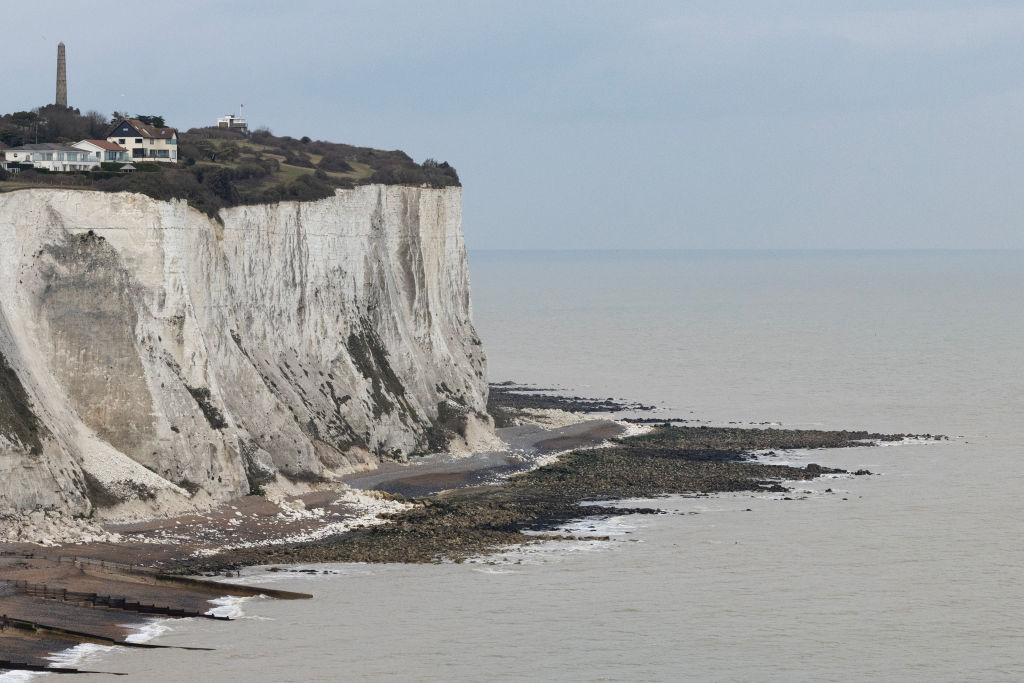I have never met Enver Solomon, the chief executive of the Refugee Council, but I have not the least doubt that his heart is in the right place. And that’s the problem. In the current and coming furore about small boat crossings and what to do about them, too many who comment are concerned to show that their heart is in the right place. Too few appear ready to contemplate the natural rather than the hoped-for consequences of stopping the government’s plan to deport those who come here without permission to a third country like Rwanda.
If you oppose the plans to send away those who land, you are advocating a continuation of migrant deaths
The natural consequences, the natural direct consequences, are that hundreds more men, women and children will drown (or suffocate in lorries) in the years ahead. More than 300 have already done so since 2000. There is no good reason to suppose the British and French government’s attempts physically to block would-be migrants from embarking or landing can ever do more than constrict the flow, as they do now. Many will always get through, and some of these will perish in the attempt. If you oppose the government’s plans to send away those who land, then whether or not you know it you are advocating an indefinite continuation of migrant deaths. And that is cruel.
Let me explain. Mr Solomon (I use his name as a shorthand for the many liberal voices that have been raised in support of the Refugee Council’s argument) is sensible enough to have anticipated the response that his passionate denunciations of the government’s plans will prompt. ‘Well, what would you do?’ His answer has been clear and often repeated, and you’ll see or hear the gist of it from many good souls objecting to the deportation plans. In the Times last month he put it like this: ‘safe routes’ to Britain, he wrote, should be available for ‘those escaping war, persecution and violence. These should include refugee visa schemes, like those established for Ukrainians, expanding family reunion and increasing resettlement routes working with the UN’.
As I understand it (and it’s hard to see how else this could be done) the idea is that an asylum seeker should be able to apply from the country they’re seeking to leave. This would have to be expedited by British consulates abroad, or perhaps by UN agencies acting for pooled destination countries. So what you’d have to do to apply for asylum would be to contact (say) the nearest British consulate in (say) Iran, fill out a form, and perhaps face an interview. This would be infinitely easier than attempting the dreadful journey overland to the Channel beach, then putting to sea at the mercy of the elements.
If you were accepted, you would then need to hop on a plane to Heathrow: risk-free, and often cheaper (even if no help with the fare were provided) than paying the people smugglers. More than two thirds of applicants are getting the green light from tribunals in the UK now, using the test provided by the European Convention on Human Rights and the 1951 Geneva Convention on the Status of Refugees, so similar results could be expected when applying from abroad.
And who, using the existing provisions, are those facing ‘war, persecution and violence’? Surely billions. Women in Islamic fundamentalist countries. Gays in the many countries where homosexuality is a criminal offence, punishable in some places by death. Millions in the world’s many conflict zones. Much of the population in despotisms like Eritrea. Uighurs in China. Rohingya in Burma. Buddhists in Tibet. And I could go on, but you get the point: seriously facilitating the migration of peoples and groups who face persecution in today’s world would result in vast movements of population, most of them to western liberal democracies. The applicable conventions are hopelessly broad in their sweep.
But Mr Solomon is not advocating restricting these conventions’ terms. So what can European governments do but limit the scale of these migrations by placing every possible physical or administrative obstacle in the path of those who seek to take advantage of their rights under the conventions?
It is not necessary to labour the argument, so I go straight to the natural consequence. No western government, including ours, is ever going to open up ‘safe’, easy and straightforward routes to would-be asylum seekers while the legal definition of their rights remains anything like as generous as it is now. In short, the obstacles we put in their path must stay, and will. Desperate people will still drown, in substantial numbers. Willy-nilly, that is what you are advocating if you don’t want the government to seek ways of breaking the people smugglers’ business plan. That is the unwisdom of Solomon.
Moreover the Refugee Council is tendentious in pointing out (correctly) that if landings continue at the present rate, deporting arrivals to Rwanda won’t work because facilities there will soon fill up. The whole point of the policy is that it would fast result, as a similar policy did in Australia, in a sharp drop in the numbers of those putting to sea, because the prospectus the people smugglers could hold out – basically ‘touch UK soil and you’re in’ – would be smashed. In the Times,Mr Solomon suggested that wouldn’t happen because those travelling to seek asylum don’t read government position papers or listen to the news. In this he is simply wrong. It’s well-known that news spreads like wildfire among refugees. Arrival numbers went off a cliff once the Australians started to deport.

I argue – and I argue only – that our government’s proposals are well worth trying. I have less confidence in British administration’s competence to put the reasoning into effect than I do in the reasoning itself. But make no mistake: unless we can find a nicer way than drowning of making the sea voyage less attractive to would-be asylum seekers, then drowning is the only brake on numbers. Of course I don’t believe any of my fellow liberals actually seek that outcome; but they should think it through.







Comments